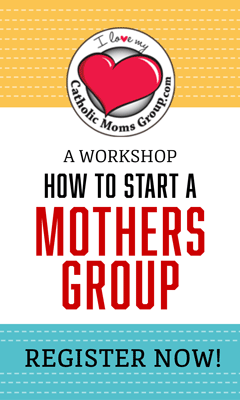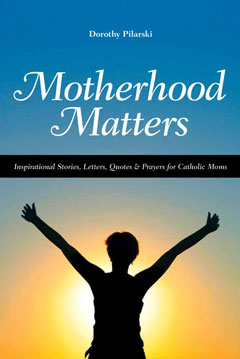A couple years ago, a friend of mine, who is a young husband and father, was diagnosed with a brain tumor. His wife contacted me for counsel on handling end-of-life decision-making should things move in that direction, and she wrote me the following:
“We are in the midst of writing up our Power of Attorneys and part of that includes the following statement: ‘If the situation should arise in which there is no reasonable expectation of my recovery from extreme physical or mental disability, I direct that I be allowed to die and not be kept alive by cardiopulmonary resuscitation, mechanical respiration, artificial nutrition, or other artificial means.’

I am just wondering what your thoughts are on the ethics of withholding feeding tube in an ‘end of life’ situation. Do you consider it an artificial means of preserving life the same as keeping someone on a ventilator? I somehow feel it is quite different and shouldn’t lumped into one statement. Is there discussion around this topic?”
In light of Canada’s recent Supreme Court Decision, I thought it would be beneficial to publish my response to her as a resource for others who may find themselves in similar situations. So here it is:
My heart goes out to you having to think of this right now. I do have some thoughts on end of life issues and interventions and wording guidelines that I’d be more than happy to share with you. On matters of end of life, the morality of what to do is often difficult to wade through because in order to determine the ethical we have to really understand the medical, and these days the medical can be quite complicated and varies according to each person’s unique condition and situation. Knowing what to do can be determined, but it takes a bit more digging.
I would therefore caution against any type of general statement like you have because I think it allows for too much interpretation and if you don’t have a pro-life physician, the doctor’s determination of “extreme” physical or mental disability could be problematic. This article herefurther explains why one should be cautious about general statements.
I should note that that link and others below all go to documents written by Catholics. Because that is my background and I am very familiar with the National Catholic Bioethics Center (from which almost all my links are drawn) I nonetheless provide them to you, knowing your different background, because I’ve never found anything more extensive and consistent with natural law principles than these. It’s not that other good documents aren’t out there, but it’s that these are what I know and I think very logical and grounded in principles that, at their core, cross denominational boundaries. Let me know if that’s okay or not.
Anyhoos, when I took my certification in health care ethics, one of the things we were taught is to distinguish things which are proportionate versus those which are disproportionate (instead of things like concern for general disability, as that can lead people to make decisions based on “quality of life” which is very subjective). I’ve attached the reading for it I was given, but in brief, the main things to focus on would be whether a particular intervention has a hope of benefit or not and would it be excessively burdensome or not. This article draws on that principle when it comes to DNRs (“Do Not Recuscitate”) and I think it says it better than I could so if you don’t mind I’ll just point you to it.
Regarding nutrition and hydration, I would classify that as care, rather than treatment, even when requiring some artificial assistance to get the process going, as food and water are basic necessities for our survival. Therefore, rather than a general statement to withhold these, I think that has to be determined from the perspective of whether administering them would be excessively burdensome (again, back to that proportionate/disproportionate standard). For example, when someone is in their dying stages, administering food and water could possibly cause more pain and little to no benefit, so it could ethically be withheld, not to speed the dying process, but to avoid causing pain to someone who is already in the dying process. But that has to be determined on a case-by-case basis to know what the administration, in a specific scenario, would actually do. This document provides some helpful insights on nutrition and hydration, although a good chunk of it relates more to those in a “vegetative” state.
There’s also helpful information related to that topic, along with respiration, which not only distinguishes artificial hydration and nutrition from ventilators, but also makes the point that determining whether one should maintain the use of a ventilator or not should still be run through the “proportionate versus disproportionate” test. You can read about this here and here.
Another perspective to bear in mind is that when someone dies, to determine the ethics of our commissions or omissions surrounding their death, we should ask, “If I act or do not act, and the person dies, what will be their cause of death?” Will it be their underlying disease/condition, or will it be our act or omission? If it’s the latter, there’s a problem. If it’s the former, that is tragically a part of life.
Admittedly, sometimes when we do one thing (e.g., administer pain medication), it can have two kinds of effects—a good effect (pain goes away) and a bad effect (the medication hastens death). If the act is consistent with the Principle of Double Effect, it can be justified.
All this to say, I think the wisest choice in end-of-life issues is what is described at the end of the first article I linked to:
“There is a better choice available to Christians than a living will. We can choose a surrogate, a living person, who will make health care decisions in real time on our behalf if we are rendered unable to do so. The proposed surrogate (also called a “health care proxy”) is someone who cares deeply about us, who loves us, and is reasonably able to make decisions in accord with our known wishes and with our best medical and spiritual interests in mind. Filling out a form to designate our health care proxy is something that each of us should do as a sensible way to prepare for difficult end-of-life situations that may arise. Preparing such a document can also prompt us to begin discussing these important topics more effectively with our families and loved ones.”
This way, the specific circumstances of each scenario that arises in the future will be dealt with, and ethically analyzed, in the present moment, rather than hypothesizing about the future. In fact, the NCBC organization I draw my information from, has a 24-hour ethical consult line that anyone, not just Catholics, can call to get an ethical analysis based on specific medical situations that arise.
I hope this helps. Again, please let me know if you’d like to discuss any of it, and please be assured of my continued prayers for you and your family.
Peace be with you, Stephanie
Note: My friend responded, “This is so very helpful. Thank you so much. I had not found as much clarity or peace in speaking to other people to this point.” Most encouraging is that almost two years since our exchange, her husband has had two brain surgeries to remove the tumor and is doing very, very well! Please keep them in your prayers.
Stephanie Gray is an inspirational speaker who has presented across Canada and the United States, as well as in England, Ireland, Latvia, and Costa Rica. Learn more at www.stephaniegray.info



